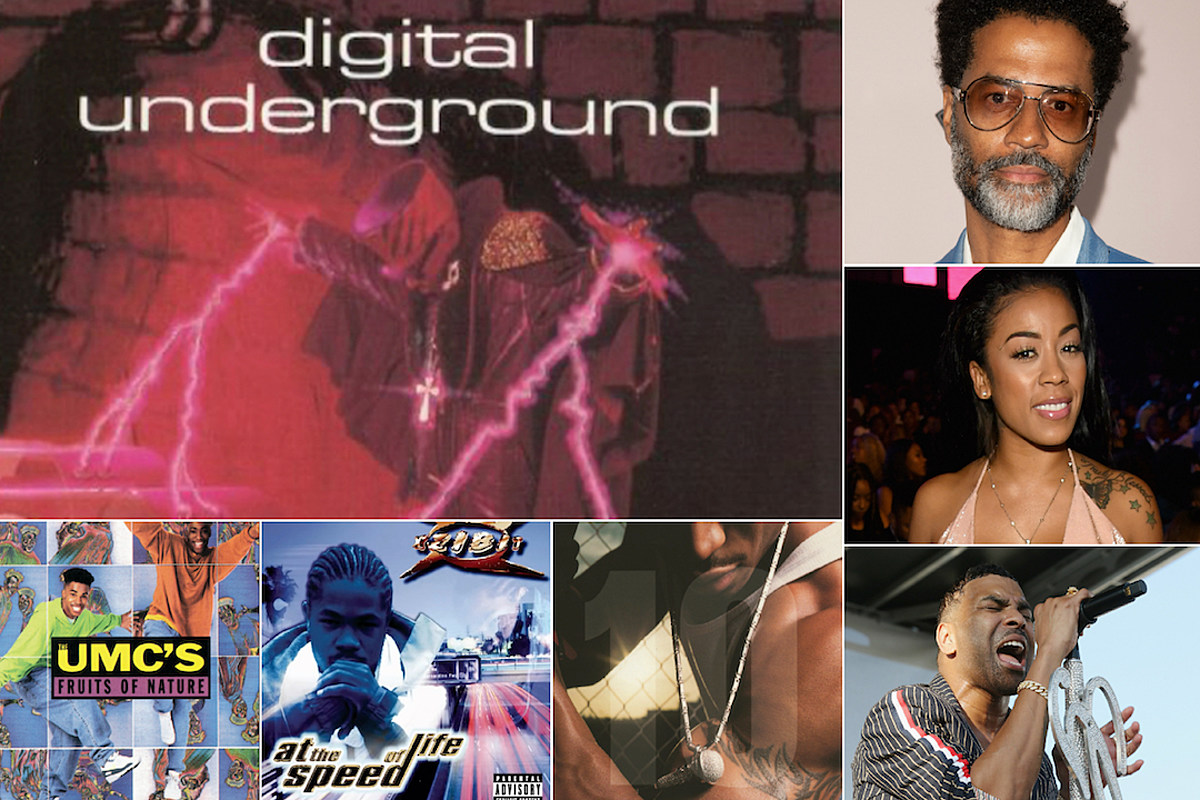On this day, Digital Underground brings the funk and nothing but the funk, Xzibit releases his debut project At the Speed of Light and LL Cool J reaches a milestone with his album 10. Also, Tito Jackson, Eric Benét, Keyshia Cole and Ginuwine celebrate birthdays. Check it out below.
1991 – Digital Underground Gets Funky With George Clinton on Sons of the P
On this day, Digital Underground released their second album Sons of the P, a follow-up to their multiplatinum debut effort Sex Packets. Much of the music on the LP was overtly inspired by Parliament-Funkadelic, including the lead single, “Kiss You Back,” which samples “(Not Just) Knee Deep.” In fact, the funk god himself, George Clinton, helped produced the title track.
“Working with George and doing that song was so fun. That was a great time because it was our first time really being around him for more than just a few backstage handshakes,” Shock G. told Wax Poetics in 2014. “When you spend time with George, it’s not like you’re on a regular in the United States; you’re in P-Funk land.”
“I remember he listened to ‘Sons of the P’ once. We sent him a tape with some of [the vocals] on there, but most of the vocals we laid while waiting for him to show up,” he continued. “He went in the booth and he did what he did in one take. All his adlib stuff he did from just listening to it once. He was amazing to work with.”
1991 – The UMC’s Release Their Slept-On Debut Album Fruits of Nature
On this day, Staten Island rap duo the UMC’s released their under-appreciated album Fruits of Nature. The album featured early-’90s sample-based hip-hop productions (courtesy of producer RNS) and light-hearted rhymes from Kool Kim and Hass G. The LP boasted two hit singles, “Blue Cheese” and “One to Grow On.”
At that time, the rap duo’s music was viewed as “kiddie rap” because of their fun and quirky rhymes, but Kool Kim said they never wanted to represent themselves as tough guys from the streets.
“The beautiful thing about us as a group was that we were non-threatening ’cause we weren’t on it like that,” he explained to Platform8470 in 2006. “I mean you know, you work so hard to [escape] the rough streets and then you get to live [out] your [dreams] and you do what – be negative with it?”
“How would I look getting on stage and fronting like I am a gunman or a drug dealer or something stupid like that?” he continued. “That would be a shame on my soul. [We were] two 19-year-old kids having some fun.”
1996 – Xzibit Releases Stellar Debut Album At the Speed of Life
On this day, Xzibit released his great debut album, At the Speed of Light. A distinguished member of the Likwit crew (alongside King T and Tha Alkaholiks), X to the Z showcased his lyrical dexterity over instrumentals that varied from the typical G-Funk sound. Among the standout tracks on the album is the orchestral-filled banger “Paparazzi,” a critique of celebrity-obsessed rappers chasing fame.
“That song [‘Paparazzi’] was the first thing I wanted to say to my community,” he told DUBCNN back in 2008. “It was everything that I had compiled in my… thesis for me coming into the game, what was important to me and what wasn’t important to me.”
“It was more talking about me than it was talking about anybody else because I’m not in it for the money or the fame,” he added. “If that was the case, I would have quit after my first album ‘cause my albums didn’t hit platinum until my third one [2000’s Restless]. So the proof of what I was saying on that first record is true today.”
2002 – LL Cool J Releases 10…Because He Felt Like It
On this day, LL Cool J released his ninth album 10 (technically, his tenth if you include his greatest-hits project All World). By this time, LL had nothing to prove to anyone, much less have to record another album. So why is he still making music?
In a 2008 interview with DJ Booth, the five-time Rock and Roll Hall of fame nominee said that he’s not making music because he needs the money, he’s making music because he can.
“Well, first of all, I didn’t get into hip-hop for money. I think people kind of got that confused,” he stated. “I think that as time went along, we became a very elitist culture, [that was] all about money, money, money, money, money. The reality is that I got into this to make great music, and to be heard, and for my voice to be heard by the people –– that’s all I really wanted.”
“As far as financials go, when it comes to hip-hop, I think I probably benefit a lot more than maybe some of the newer, or even older artists, because I own my catalog,” he continued. “Def Jam administers it, but because I own it, I have a different pay grade. I don’t think people are aware of that, but, that being said, it’s not really about the money. I’m not making hip-hop just for money; I’m doing hip-hop because I think it’s cool, and I want to be the best.”
